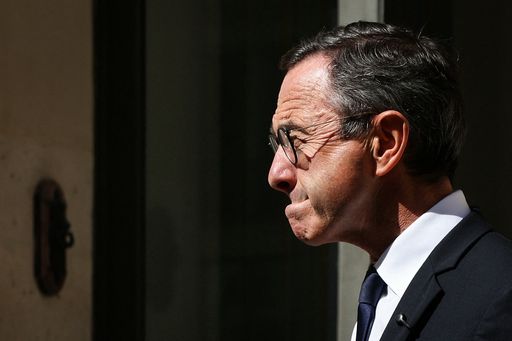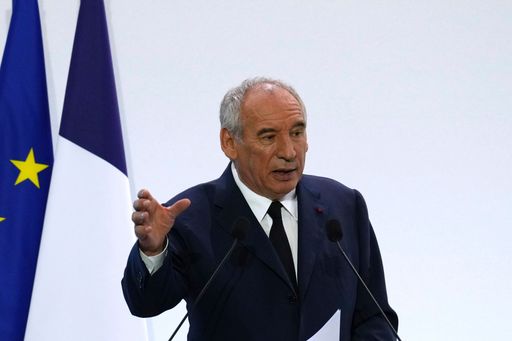France is engulfed in widespread unrest under the “Block Everything” (Bloquons Tout) movement, a grassroots protest movement that started on social media but has managed to bring the nation to a standstill.
Demonstrations have grown in scale, with nearly 200 arrests reported on Wednesday in the opening hours of the protests, significantly higher than initial tallies of 95.
France deployed on Wednesday some 80,000 police nationwide as protesters in and around Paris built barricades from rubbish bins, blocked schools and roads and pelted police with garbage early in the day.

What is ‘Block Everything’?
The “Block Everything” movement began as a right-leaning initiative but has rapidly broadened to include left-wing and far-left groups, united by a common frustration with what they see as a broken political system.
Its emergence comes amid intensifying political instability, most recently marked by the ousting of Prime Minister François Bayrou following a failed confidence vote over austerity measures.
His successor, Sebastien Lecornu, took office under a cloud of public distrust, becoming President Emmanuel Macron’s seventh prime minister since he took office in 2017 and the third PM within the space of the year.
Lecornu, a conservative Macron protege who most recently served as his defence minister, arrived at the prime minister's residence at midday, where he met with former Prime Minister Francois Bayrou, who was ousted by parliament on Monday over plans to trim the country's outsized deficit.
The unrest is being driven by widespread anger over proposed austerity cuts, deepening economic inequality, and growing perceptions of democratic backsliding, grievances that echo the sentiments behind the 2018 Yellow Vest protests, but with a broader and more ideologically diverse coalition.
Although unrelated, adding to the unrest, severed pigs' heads inscribed with Macron’s name were found on Tuesday near nine Paris-area mosques, prompting investigations into possible foreign interference.
Authorities anticipate possible sabotage and violent actions targeting infrastructure like oil refineries and transport hubs.
Why is it significant?
The current wave of protests in France reflects not only discontent with individual policies such as pension reforms or austerity budgets but also a broader crisis of confidence in the country’s political institutions.
Many protesters view the political system as increasingly unresponsive, elitist, and structurally incapable of representing ordinary citizens.
This has only been reinforced by Macron's recent governance choices, most notably, the appointment of three prime ministers in less than one year, a rapid turnover that signals chronic instability at the heart of the executive.

His most recent appointee, Lecornu, assumes office without an electoral mandate and amid widespread suspicion, especially after his predecessor, Bayrou, was ousted following a failed parliamentary confidence vote over a highly unpopular austerity budget.
The protests also mark a significant evolution in the nature of public dissent in France.
Unlike earlier mass mobilisations, such as the Yellow Vest movement in 2018, the current unrest is highly decentralised, ideologically diverse, and less reliant on traditional union structures.
The “Block Everything” movement brings together actors from both the far-right and far-left two factions that rarely align, indicating how deeply shared the sense of disillusionment has become.
This lack of centralised leadership makes the protests more unpredictable and harder to negotiate with or suppress through standard political channels.
Authorities have expressed concern about the increasingly radicalised tone of some demonstrators, with fears of sabotage against critical infrastructure, symbolic violence, and growing hostility toward institutions seen as complicit in maintaining the status quo.
Together, these dynamics suggest that France is facing not just a policy backlash, but a structural legitimacy crisis, one with no easy off-ramp.
What’s next?
Newly appointed Prime Minister Lecornu is expected to present a revised fiscal plan in the coming days, aimed at restoring political stability and addressing growing public frustration.
Lecornu has to send a full draft of the 2026 budget to parliament by October 7, although there is some wiggle room until October 13, after which lawmakers will run out of time to pass the budget by year's-end.
His appointment, however, has done little to quell the mood on the streets, with protest organisers and labour unions planning to sustain pressure on the government.
A major nationwide strike is scheduled for September 18, coordinated by eight major union blocs. Sectors expected to be heavily impacted include public transport, education, and aviation, with France’s air traffic controllers also planning strikes between September 18 and 19.
In anticipation of further unrest, French authorities remain on high alert, with security services preparing for potential acts of sabotage targeting vital infrastructure such as oil refineries, transportation networks, and communication systems.
As the movement continues to grow and evolve, the government's response in the coming weeks could either de-escalate tensions or further deepen the political crisis.




















